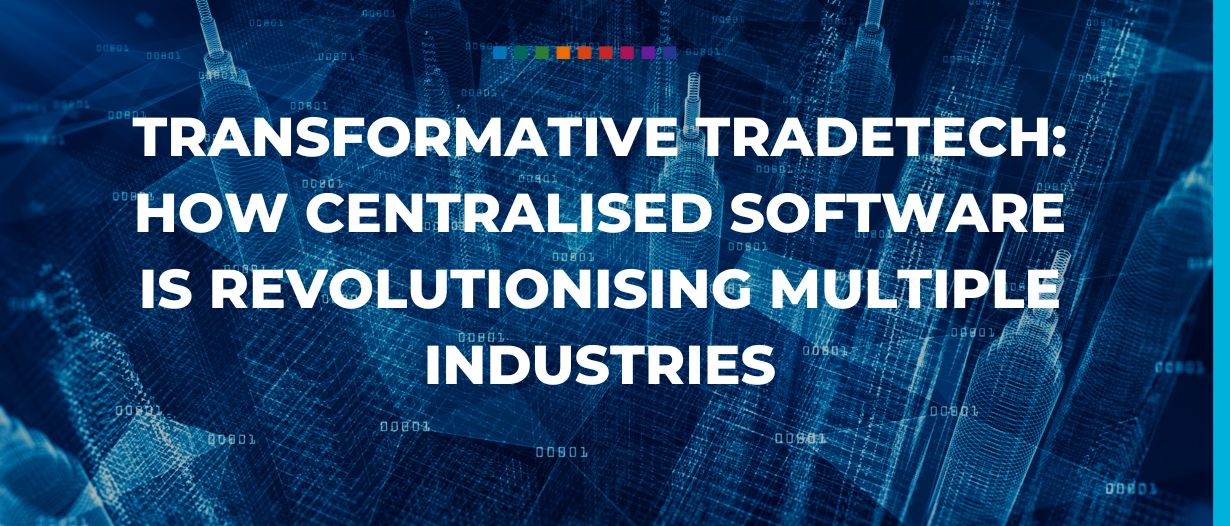There has been a huge boom in transformative trade technology in recent years. As more companies have focused on creating software that can be applied across multiple industries, there was a huge market for software as a service (SaaS) including everything from Google’s range of tools to Dropbox.
And this type of software can be a very effective solution for an organisation, especially if there isn’t a great need for specific features. However, it is becoming more and more common that companies are looking for tailor-made industry-specific software in order to get the kind of functionality that they need to run their operation more effectively.
There are actually many examples of industries that have been revolutionised by the industry-specific technology that has been developed for them. In this article, we will take a look at some of these examples, the vital role technology plays in business innovation and also at the day-to-day benefits of using industry-specific software for businesses.
Fintech
Perhaps the most notable sector that has thrived on industry-specific software has been fintech. For many fintech businesses, it is their own personal software that has allowed them to challenge larger and more established financial institutions.
The greater functionality and flexibility of innovative fintech apps have helped them to stand out from their competition. This has led to very fast adoption of a range of new technologies such as NFTs and cryptocurrency.
Fintech businesses continue to show their diversity and sustainability, and the technologies that they have been able to implement have been a huge part of this.
The benefits of industry-specific software
- Cost-effective expansion – companies that are in the midst of growth need to have systems that can scale effectively with them. When software is designed with the needs and requirements of an industry in mind, it understands the kind of functionality that these businesses require as they grow.
- Industry-specific support – when software is focused, so are the support staff who work on it. Industry-specific software is necessarily designed and created by those with an appreciation of the needs of the industry. This means that if you encounter any challenges, you can get in contact with the software provider.
- Easier integrations – it is, unfortunately, the case that while many software products are built to communicate with other software to fill gaps in their functionality, most providers design the software only to integrate with other products created by their company. Industry-specific software providers often understand the need for integration with key pieces of software that are relevant to the sector.
- Increased productivity – when industry-specific software is deployed, it creates workflows designed to maximise the potential of the business. This means that companies working with industry-specific software tend to be more productive.
Law firms
If there is one thing that can be said about law firms, it is that they have to deal with a huge amount of data and paperwork. In the course of day-to-day case management, legal staff must read countless documents and files, both covering the specifics of the case that they are working on, as well as the legal background and precedents.
Keeping track of all this information and keeping it all in one place can be vital, but if a law firm uses standard software, there is no easy way to do this. And there certainly isn’t a portal that clients can log in to in order to keep up with the key parts of the case. This has been solved by the advent of case management software.
This software not only keeps track of the specifics of the case in one place, it also allows access for easier collaboration and following of the case. This helps to keep clients feeling informed and positive about the work the law firm is doing.
Food and beverage
There can be no doubt that there are actually multiple forms of technology that have improved the running of food and beverage businesses. For example, in any company where there is a need for customer service, it is important to have a high-quality rota that is easy to create, modify and access for all staff.
This is vital in the food and beverage sector not just because it ensures that staff understand the shifts that they are working, but it can also make sure that there is someone in at all times to carry out all of the different aspects of the operation.
There is also technology such as point-of-sale (POS) systems that have been created for industries as specific as pizza restaurants. This shows just how niche these systems can be and the kind of impact that they can have on organisations of all sizes.
Is there still a place for general SaaS?
In short, yes, there is still a key role for general SaaS software to play and often businesses can benefit from a mix of general and industry-specific software. There can be no doubt that technology is playing a role in transforming industries as we know, as such it is important for companies to keep up.




























